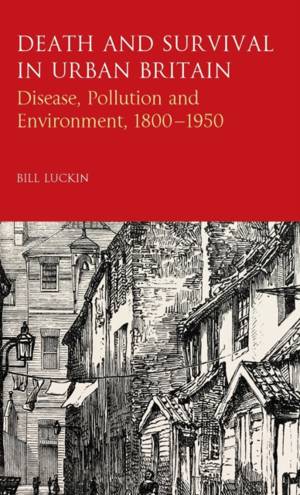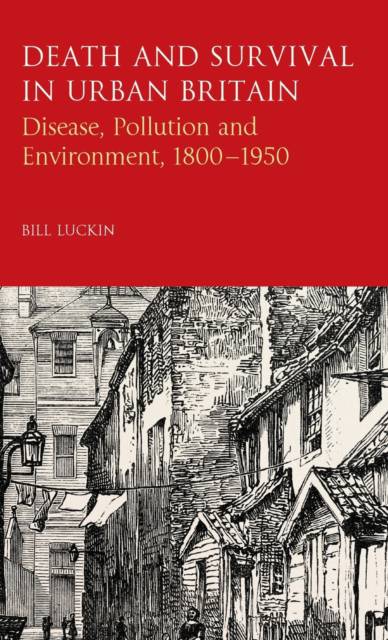
- Afhalen na 1 uur in een winkel met voorraad
- Gratis thuislevering in België vanaf € 30
- Ruim aanbod met 7 miljoen producten
- Afhalen na 1 uur in een winkel met voorraad
- Gratis thuislevering in België vanaf € 30
- Ruim aanbod met 7 miljoen producten
Zoeken
€ 296,95
+ 593 punten
Omschrijving
The narratives of disease, hygiene, developments in medicine and the growth of urban environments are fundamental to the discipline of modern history. Here, the eminent urban historian Bill Luckin re-introduces a body of work which, published together for the first time, along with new material and contextualizing notes, marks the beginning of this important strand of historiography. Luckin charts the spread of cholera, fever and the 'everyday' (but frequently deadly) infections that afflicted the inhabitants of London and its 'new manufacturing districts' between the 1830s and the end of the nineteenth century. A second part - 'Pollution and the Ills of Urban-Industrialism' - concentrates on the water and 'smoke' problems and the ways in which they came to be perceived, defined and finally brought under a degree of control. Death and Survival in Urban Britain explores the layered and interacting narratives within the framework of the urban revolution that transformed British society between 1800 and 1950.
Specificaties
Betrokkenen
- Auteur(s):
- Uitgeverij:
Inhoud
- Aantal bladzijden:
- 288
- Taal:
- Engels
- Reeks:
Eigenschappen
- Productcode (EAN):
- 9781780768663
- Verschijningsdatum:
- 30/07/2015
- Uitvoering:
- Hardcover
- Formaat:
- Genaaid
- Afmetingen:
- 137 mm x 218 mm
- Gewicht:
- 498 g

Alleen bij Standaard Boekhandel
+ 593 punten op je klantenkaart van Standaard Boekhandel
Beoordelingen
We publiceren alleen reviews die voldoen aan de voorwaarden voor reviews. Bekijk onze voorwaarden voor reviews.











